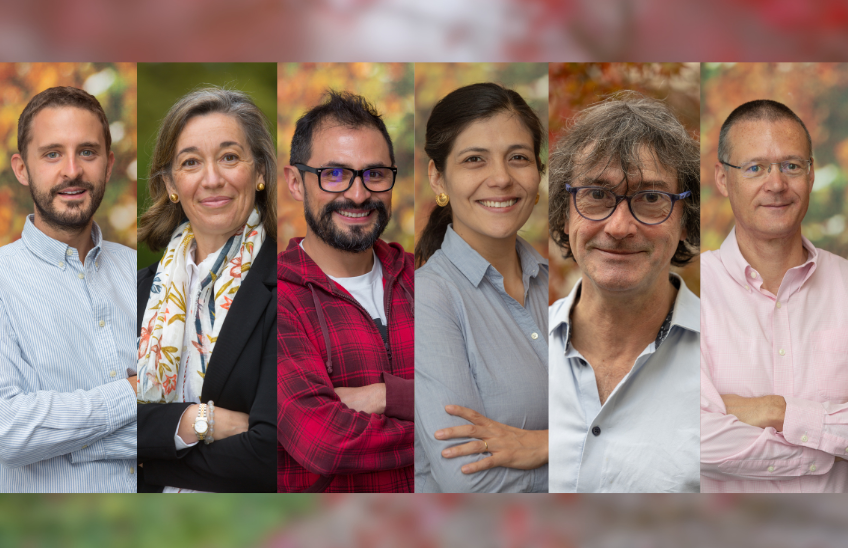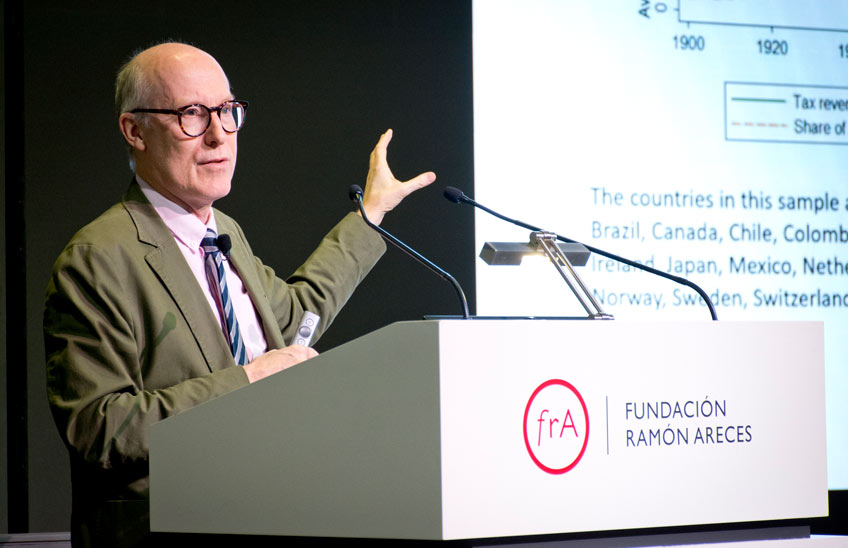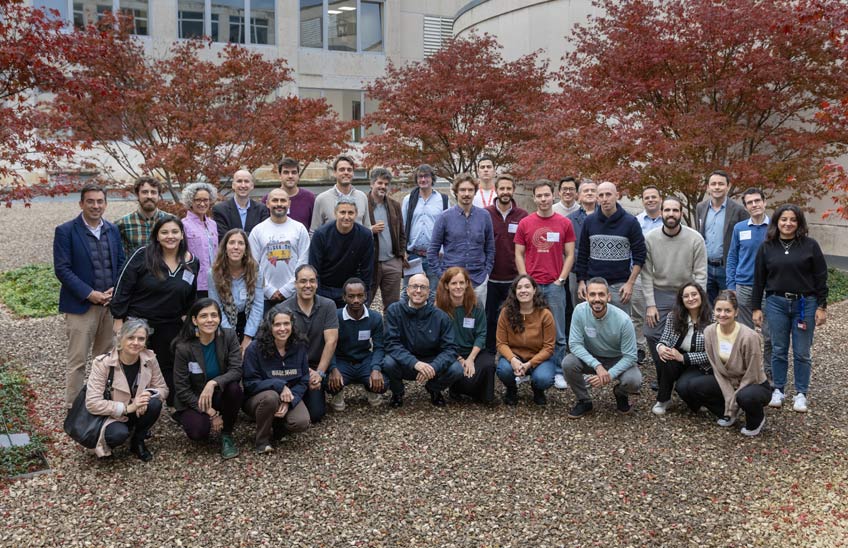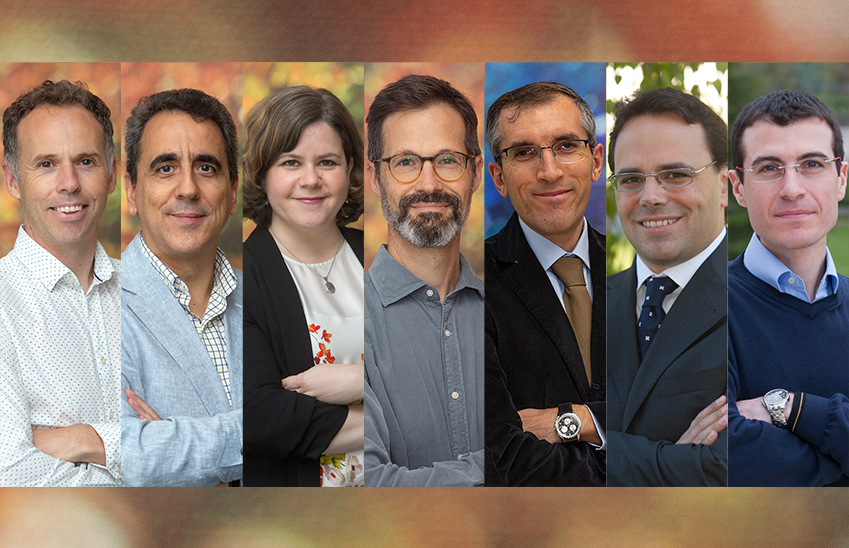Economist Ryan Kellogg, an expert in energy transition, proposes to implement a model to face the end of the oil era.
The professor of the University of Chicago has given a seminar sponsored by the Navarra Center for International Development (NCID) of the ICS.
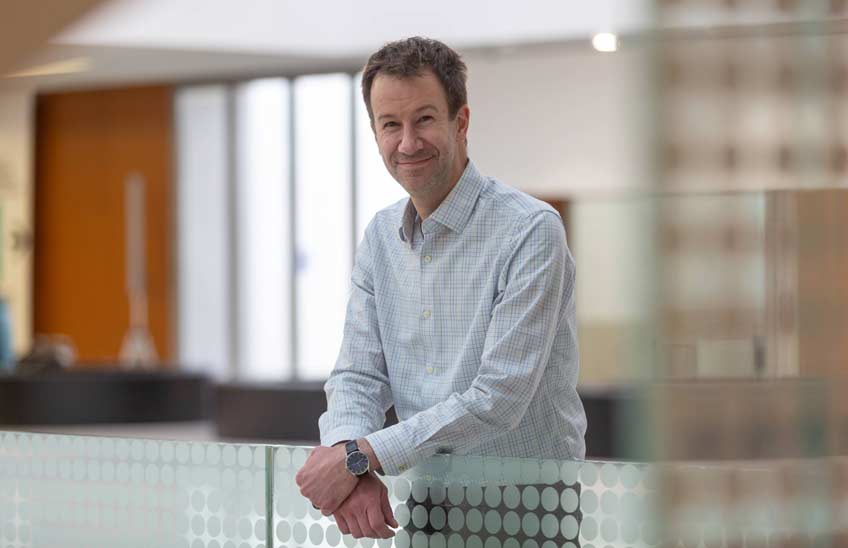
FotoManuel Castells<br>/Ryan Kellogg
26 | 04 | 2024
By the end of the century, global oil demand is likely to drop to near zero due to improvements in clean energy technologies, with alternatives such as electric and hydrogen vehicles, and the adoption of increasingly stringent climate policies. This was pointed out by economist Ryan Kellogg, a professor at the Harris School of Public Policy at the University of Chicago, who gave a lecture at seminar sponsored by the Navarra Center for International Development (NCID) of the Institute for Culture and Society (ICS) of the University of Navarra. In his first visit to Pamplona, this expert in public policies of environmental sustainability, has explored the keys to the future of crude oil and explained the model that he defends to face it.
To this end, he pointed out the two possible effects that can occur when the market considers, in general, that the end of the oil era is near. On the one hand, he mentioned the so-called "green paradox" which, bearing in mind that oil is limited resource , means that "producers could accelerate extraction in the short term to overcome the drop in demand. This reaction would increase CO2 emissions in the short term and could even make the total present value of climate damage greater than if demand had not decreased at all".
On the contrary, the other effect would be "an anticipated drop in demand causes companies to reduce their investments, thus reducing short-term production and CO2 emissions". Faced with this, Kellogg has proposed a model whose core topic is "toallow both effects to occur simultaneously. By implementing the model it is possible to quantify in different scenarios which effect will be greater and which will be less".
Considering both, in his research he argues that "if you are really confident that the divestment mechanisms are stronger than the "green paradox", in terms of policy it is fine. In fact, it is positive from an emissions reduction perspective to announce in advance that policies will be tighter because they are going to reduce oil production today."
On alternatives such as electric and hydrogen cars, Kellogg stressed that "with both electric and hydrogen vehicles, which is a newer technology, you have to keep in mind that how clean they are, in terms of climate, is going to depend a lot on the sources of electricity generation. When someone plugs in a car, does it run on really clean energy (i.e., renewable and emission-free) or on a coal-fired electric generator? And something similar happens with hydrogen vehicles". In this sense, he said that "this status will improve over time, as the networks are cleaned up. Spain has a particularly clean network , especially now, when there is a lot of hydraulic and solar energy...". He also indicated that "especially electric vehicles are going to be much cleaner in terms of pollution in cities. Another problem with cars that run on gasoline or diesel is that they produce smog (smog) and other local pollutants that are directly harmful to health, and electric vehicles do not have them".

